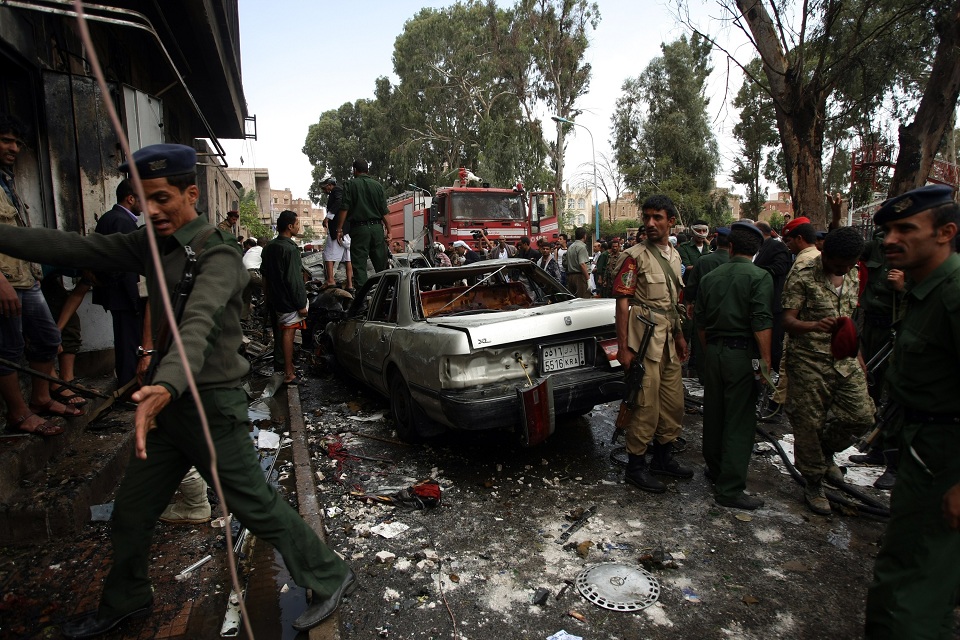A number of prominent leaders have reacted to the Supreme Constitutional Court’s (SCC) ruling that the formation of the Constituent Assembly and Shura Council is unconstitutional, in addition to the court’s decision to uphold the council’s legitimacy until the next parliamentary elections.
“The verdict was a win-win situation, it satisfied all parties and took into account the political implications of creating a legislative vacuum,” said constitutional expert Raafat Fouda.
The verdict was based on the unconstitutionality of the election law for independent members who form one third of the Shura Council.
The SCC also ruled the first article of Law 79 for 2012, governing the election of the Constituent Assembly, as unconstitutional. The assembly was tasked with drafting the constitution which was voted upon by a national referendum.
“This implies that the constitution of this country, which gave the current president his powers, is unofficial,” Fouda said, adding that Egypt is ruled by a “fait accompli” rather than an official constitution.
Constitutional Expert Mohamed Nour Farahat stated that the SCC may have ruled against the Shura Council because the parliamentary body’s legislative powers depend on its constitutional formation. “The illegitimate election law of the Shura Council isn’t made legitimate by the constitution,” Farahat stated.
Concerning the Constituent Assembly, Farahat said that the verdict brings the case back to the State Council to consider the annulment of its formation, which could affect the status of the constitution, according to experts.
The verdict also stirred different reactions from political parties and figures. Judge Tahani Al-Gebali, former member of the SCC, held a press conference on Sunday to comment on the verdict which she described as “historic”.
The judge explained that it was the first time the SCC suspends a judgment on a future event, referring to the parliamentary elections. “The date of the elections is still unknown,” she said.
She added that the unprecedented decision was based on “convenience considerations” to avoid a legislative power vacuum.
“I expect two scenarios: the first is a revolutionary struggle against the legislative role of the faulty Shura Council and the other is a legal struggle against not dissolving it,” Al-Gebaly said.
She added that judges plan to protest on Monday against the Judiciary Law that is currently being discussed by the council.
“We will also struggle against the document they call the constitution; it is invalid even if it was passed by a referendum,” she said. “This document is to blame for the political conflicts we’re witnessing today.”
The presidency released a statement stressing that the constitution that was passed through a referendum is the reference upon which everyone acts, adding that people and state institutions should respect and defend the constitution.
The statement also said that the Shura Council will continue to perform its legislative role until the legislative authority is passed to the newly elected House of Representatives.
“The president is the one who oversees state authorities and he performs his constitutional and legal responsibilities to ensure that each authority is performing its role as designated by the constitution,” the statement read.
Professor of political science and former MP Amr Hamzawy stated that he appreciated the reasons behind postponing the dissolution of the Shura Council. “However, the Shura Council should limit legislation to election laws for the House of Representatives,” he said.
He added that the council should refrain from discussing social, economic and judicial laws.
Hamzawy also said the verdict proved the legislative chaos brought on by the Muslim Brotherhood. “They should be prevented from drafting laws until the House of Representatives is elected.”
Mourad Ali, media adviser of the Freedom and Justice Party (FJP), countered that the verdict does not change anything. “Some groups are trying to involve the judiciary in political conflicts.”
Former minister of state for legal and parliamentary affairs Mohamed Mahsoob commented on the verdict saying that it was a call to participate in the parliamentary elections to end the temporary state of the legislature.
“This dilemma will end when the people elect their representatives and a government that represents the majority is formed; only then we will be on the right track towards democratic transition,” Mahsoob said.
Shehab Wagih, spokesperson for the Free Egyptians Party, was less hopeful: “The verdict came too late, we knew from day one the Shura Council was unconstitutional.”
Wagih added that the country had been going in the wrong direction since the referendum of 19 March 2011 that postponed drafting the constitution until after the presidential elections.
“We support [Mohamed] ElBaradei’s call for forming a new Constituent Assembly,” Wagih said.
Al-Dostour Party and National Salvation Front leader Mohamed El-Baradei had previously stated that the first step towards reform was a consensual Constituent Assembly to amend the constitution.
The SCC’s verdict came after the case was referred to the Commissioners Authority of the court for a legal opinion. The authority, an advisory body for the court, recommended against ruling on the case because the new constitution safeguarded the Shura Council and gave it legislative powers.
The challenges to the Shura Council and the Constituent Assembly were referred to the SCC by the Supreme Administrative Court. The SCC previously found the People’s Assembly unconstitutional last June for similar reasons related to the election of independent members of the parliamentary body.
The People’s Assembly was dissolved following the ruling.

